—story by Ross Courtney
—photos by Ross Courtney and TJ Mullinax
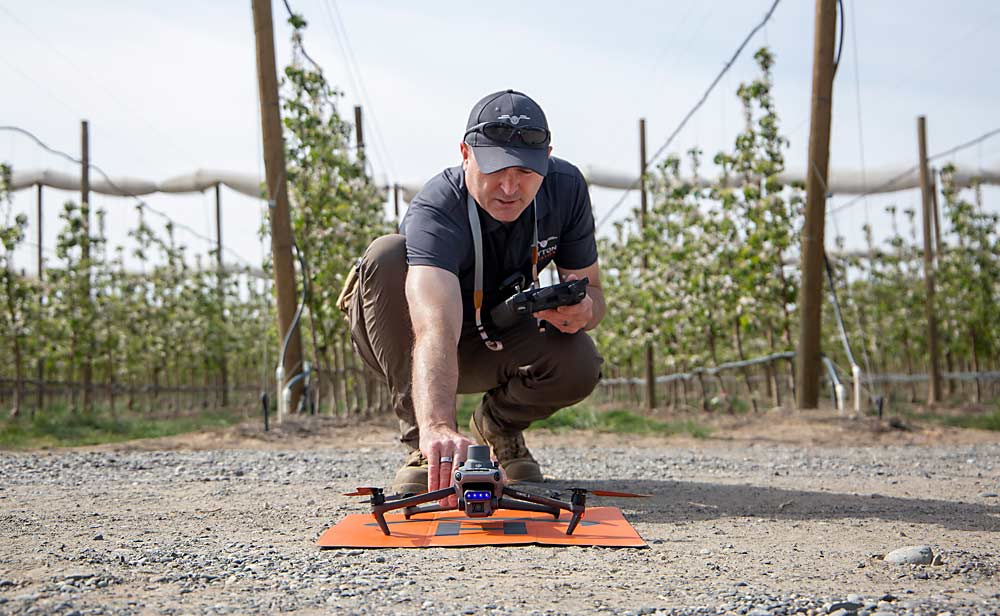
The Smart Orchard keeps evolving.
Once a playground for testing sensors, the third and newest location of the Smart Orchard is hosting robotic, variable-rate fertilization trials, automated irrigation and heat-stress mitigation, aerial bloom mapping and more.
“There’s so much going on out there,” said Keith Veselka, a member of the Washington Tree Fruit Research Commission, which is funding the Smart Orchard project at $196,000 over three years. Washington State University organizers also have dedicated portions of U.S. Department of Agriculture National Institute of Food and Agriculture grants to the Smart Orchard.
The new Smart Orchard, located near Mattawa, is farmed by NWFM, an agricultural management company known for its early adoption of technology. Veselka is the managing partner. It includes a third-leaf, 30-acre block of WA 38 apples and a third-leaf, 8-acre block of Cripps Pink apples.
Work began with bloom mapping in the spring. Heat stress monitoring and irrigation automation trials are underway through the summer, with trials involving companies WiseConn, Dynamax, SWAN Systems and others.
The principal investigator is Lav Khot, WSU associate professor of biological systems engineering and director of AgWeatherNet. However, numerous collaborators from the university, technology and grower worlds are involved. One bonus: The new spot is more centrally located between the tree fruit industry hubs of Wenatchee, Yakima and the Tri-Cities. Previous sites were near Pasco and Grandview, with some overlap between the two. The Grandview location has been replanted.
Meanwhile, the Mattawa site features retractable netting and tall-spindle planar canopies on the flat ground of the Columbia Basin.
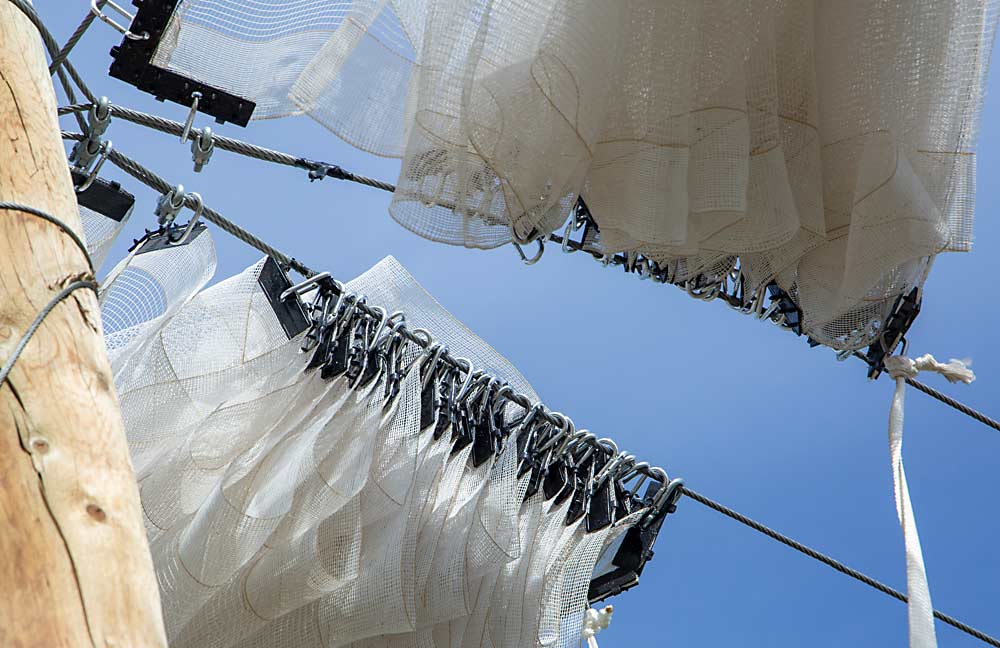
The sandy and hot location lends itself well to the heat stress and irrigation management studies, said Bernardita Sallato, a WSU tree fruit extension specialist. She discovered that the soil texture under the entire 38 acres was surprisingly variable, once she started digging the evaluation pits for which she has become known. So, she and her collaborators narrowed their range to 9 acres for some of the studies.
“It is flat on the surface, but not underground,” Sallato said.
(For more on Sallato’s soil evaluation pits, see the story from our May 1, 2020, issue: “Soil pits get the view from below.”
The netting limits the work of drones — though one vendor is using aerial drones for bloom mapping before the nets go up.
“But more and more growers are moving toward shade cloth,” said Steven Mantle, owner of the data analytics service innov8.ag and coordinator of the previous Smart Orchard sites.
The flatter ground and planar canopies make for better crop load management studies and proving grounds for automation, Mantle said. For example, engineering students at WSU’s Center for Precision and Automated Agricultural Systems are using the Smart Orchard to test a robot that applies variable rates of fertilizer on a tree-by-tree basis.
Mantle is one of the commercial collaborators, using SoilOptix and Green Atlas sensors to map nutrients, water, crop load and vigor. As for the chemical thinning portion of crop load management, that’s why Khot and his team added the Cripps Pink block. WA 38 trees are considered self-thinning.
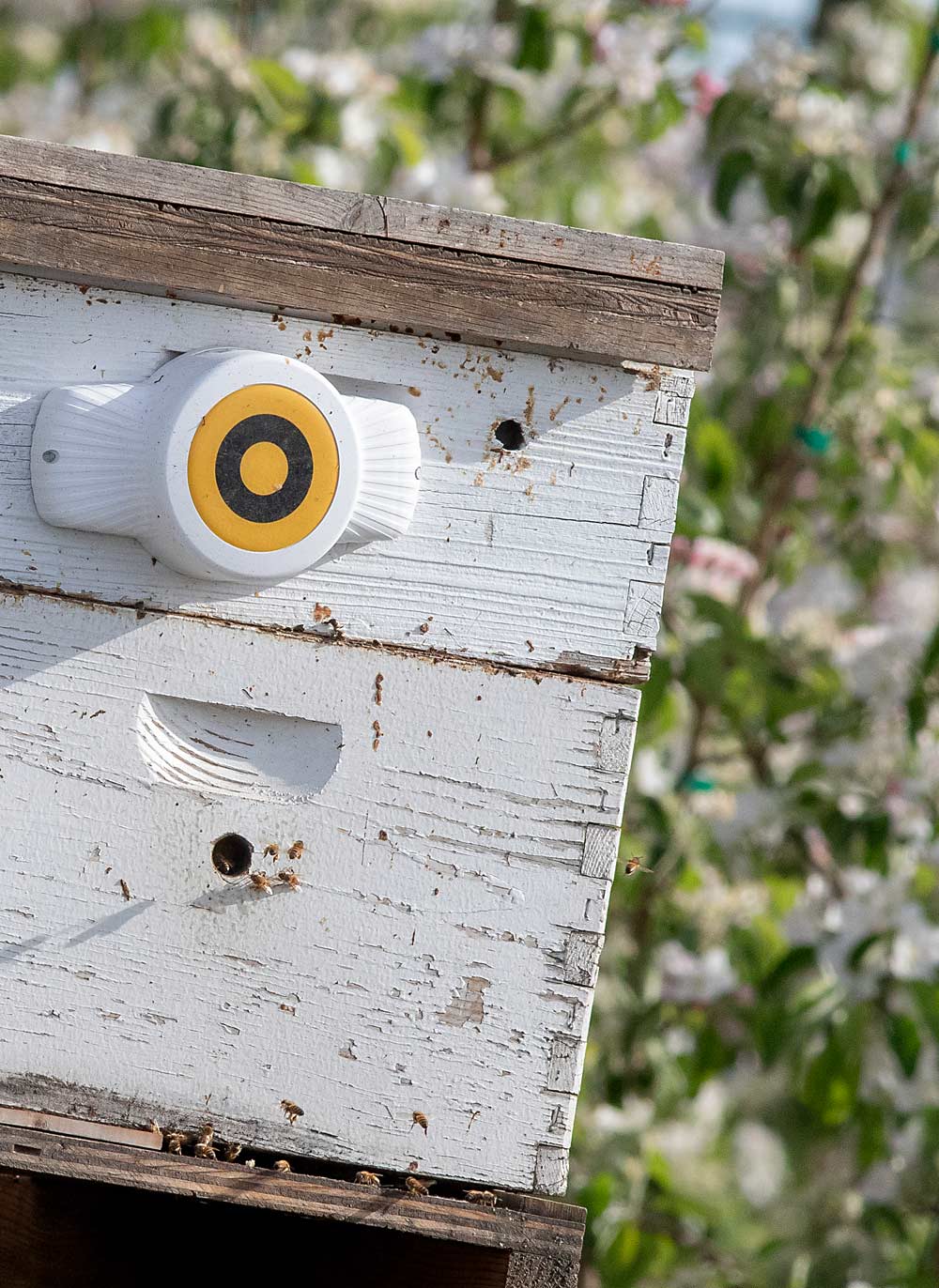
Even bees get smart treatment at the Smart Orchard.
For two years during bloom, Israeli company BeeHero has set up sensors that measure flights, temperature, weight and other metrics in hives and in tree rows.
As a tech company that also functions as a broker, BeeHero issues its hive health sensors to beekeepers it has vetted, then places those high-tech hives with commercial farmers as part of its pollination service. The data can be used to inform decisions on placement and removal of hives and when to supplement the bees’ food during poor weather. One sensor detects a sound signature that bees make when pollinating a flower, allowing the company to measure flower visits.
“We can actually help industries find best practices,” said co-founder Itai Kanot.
With U.S. headquarters near Fresno, most of the company’s clients are in the California nut industry, but it began operating in Northwest fruit orchards last year.
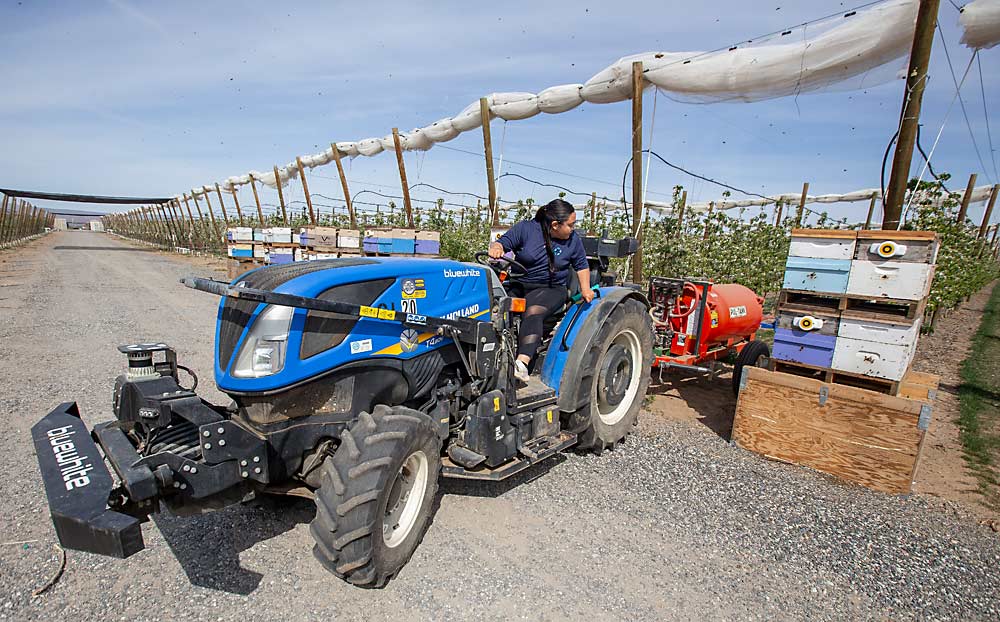
Technically, BeeHero is not a Smart Orchard collaborator; it has a commercial relationship with NWFM. Other technology is beyond the trial stage as well: the Bluewhite-guided driverless tractors spraying and hauling through the blocks belong to NWFM as part of its commercial operation.
However, Veselka considers the WSU-led Smart Orchard trials and his own technology applications as pieces of the same puzzle to advance precision agriculture. •
For more information about the Smart Orchard, visit: smartorchard.wsu.edu.

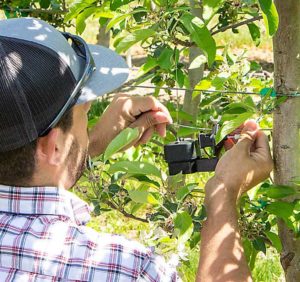
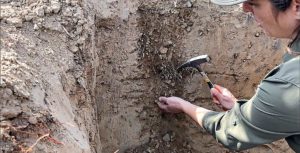





Leave A Comment